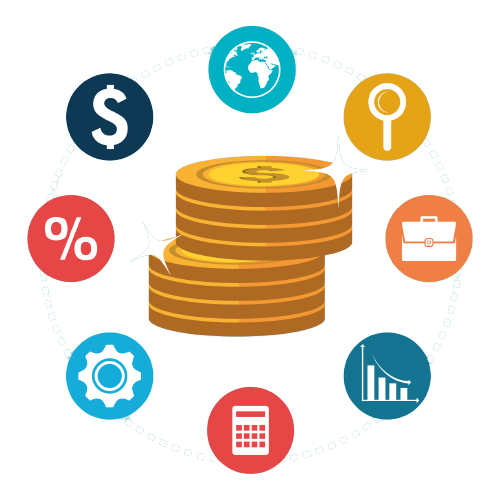- Home »
- ERPNext »
- Industry »
- Non Profit »
Non Profit
Uniting hearts, transforming lives, and making hope tangible for a brighter tomorrow

Enterprise Resource Planning (ERP) systems have emerged as invaluable tools in revolutionizing the operations of modern non-profit organizations. These systems offer a comprehensive suite of features that enhance efficiency, transparency, and overall effectiveness. Let’s delve into the various ways ERP systems contribute to the success of today’s non-profit organizations.
Financial Management
ERP systems offer sophisticated financial management tools tailored to non-profits. They automate complex financial processes, such as budgeting, grant management, and fund accounting. These features ensure the accurate allocation of resources, adherence to financial regulations, and the ability to provide real-time financial insights. By tracking financial data down to granular levels, non-proprofits can optimize their spending, reduce overhead costs, and allocate funds to where they are needed most. Real time reporting and analytics provide insights into financial health, enabling nonprofits to make informed decisions, demonstrate fiscal responsibility to donors and stakeholders.


Resource Allocation and Optimization
Effective resource allocation is crucial for non-profits. ERP systems incorporate modules for resource planning, enabling organizations to optimize staff, volunteer, and physical resource allocation based on mission priorities. This ensures that non-profits make the most of their available resources and deliver their programs efficiently. ERPNext helps organizations optimize resource allocation by providing tools for tracking and managing donations, grants, volunteers, and staff. The system offers real-time visibility into resource utilization, enabling nonprofits to allocate resources where they are needed most.
Inventory and Supply Chain Management
For non-profits involved in distributing goods or services, ERP systems optimize inventory management and supply chain processes. This ensures that resources are always available when needed, reduces waste, and allows non-profits to respond promptly to emergencies or changing needs. ERPNext’s inventory and supply chain module enable organizations to track and manage inventory levels, donations, and distribution networks efficiently. Real-time insights into inventory status and demand forecasting help nonprofits ensure that essential items are readily available to those in need.
Donor Relationship Management
ERP systems provide non-profits with advanced donor relationship management capabilities. They maintain comprehensive donor databases that capture not only contact information but also historical giving patterns, preferences, and interactions. This wealth of data empowers non-profits to tailor their fundraising efforts to individual donors, resulting in increased donor retention and potentially higher contributions. ERPNext’s donor relationship management module helps organizations cultivate and maintain strong connections with their supporters. It tracks donor interactions, preferences, and contributions, allowing nonprofits to personalize communication and engagement efforts.


Fundraising Campaigns
ERP systems support fundraising campaigns by managing donor contributions, automating gift processing, and analyzing campaign effectiveness. Non-profits can segment their donor base, tailor communication strategies, and measure the success of fundraising efforts with detailed reporting and analytics. Fundraising is the lifeblood of many nonprofits, and ERPNext facilitates effective fundraising campaigns. It provides tools to plan, execute, and analyze fundraising efforts. Nonprofits can track donor responses, contributions, and campaign performance in real time.
Grant Management
Managing grants efficiently is vital for non-profits sustainability. ERP systems streamline grant application, tracking, reporting, and compliance processes. They ensure that non-profits meet all grant obligations, reduce the risk of funding loss, and maximize the impact of grant dollars. Managing grants effectively is crucial for nonprofits that rely on external funding. ERPNext’s grant management module simplifies the process of grant application, approval, tracking, and reporting. It ensures that nonprofits can meet grant requirements, track fund disbursements, and demonstrate accountability to grantors.
Transparency and Accountability
Transparency is a cornerstone of non-profit operations. ERP systems assist in maintaining this transparency by generating accurate and auditable financial reports, tracking program outcomes, and ensuring compliance with donor and regulatory requirements. Non-profits can provide donors and stakeholders with clear, trustworthy information on how funds are utilized. Transparency and accountability are fundamental principles for nonprofits. ERPNext supports these principles by providing real-time access to financial and operational data. It allows nonprofits to generate detailed financial reports, donor reports, and impact reports, ensuring transparency in how funds are used.


Cost Reduction and Efficiency Gains
ERP systems significantly reduce administrative overhead by automating routine tasks and optimizing workflows. Non-profits can redirect cost savings to their core mission, allowing them to make a more substantial impact on their target beneficiaries. ERPNext helps organizations achieve cost reduction and efficiency gains by streamlining operations, automating administrative tasks, and optimizing resource utilization. Nonprofits can focus more on their mission-critical activities while minimizing administrative overhead.
Data-driven Decision Making
ERP systems collect and analyze data from various organizational facets, allowing non-profits to make informed decisions. Advanced analytics tools help identify trends, assess program impact, and allocate resources efficiently. Data-driven insights enable non-profits to continuously refine their strategies. Data driven decision-making is key to nonprofit success. ERPNext’s reporting and analytics tools provide nonprofits with actionable insights into their operations, donor engagement, and program outcomes.
Project and Program Management
ERP systems streamline project and program management by centralizing project data, facilitating task coordination, and tracking progress. Non profits can allocate resources effectively, meet milestones, and monitor the effectiveness of their programs. This comprehensive view enables timely adjustments to optimize outcomes. Effective project and program management are essential for nonprofits to deliver their services efficiently. ERPNext offers tools for planning, executing, and monitoring projects and programs.


Communication and Collaboration
ERP systems foster improved communication and collaboration within non-profit organizations. Integrated communication tools, document sharing, and centralized data storage enable staff, volunteers, and stakeholders to work cohesively toward common goals. This collaboration enhances overall organizational efficiency. Effective communication and collaboration are vital for nonprofits working with diverse stakeholders. ERPNext provides tools for internal and external communication, as well as collaboration among team members, volunteers, donors, and partners. Nonprofits can streamline communication, share information, and foster collaboration to achieve their mission more effectively.

